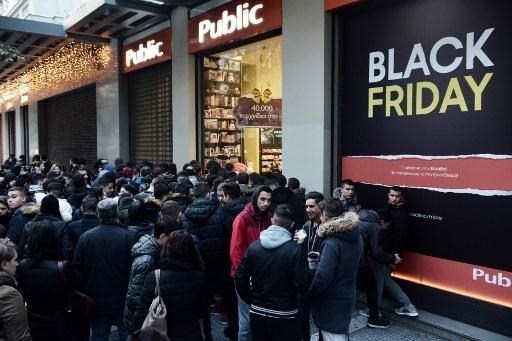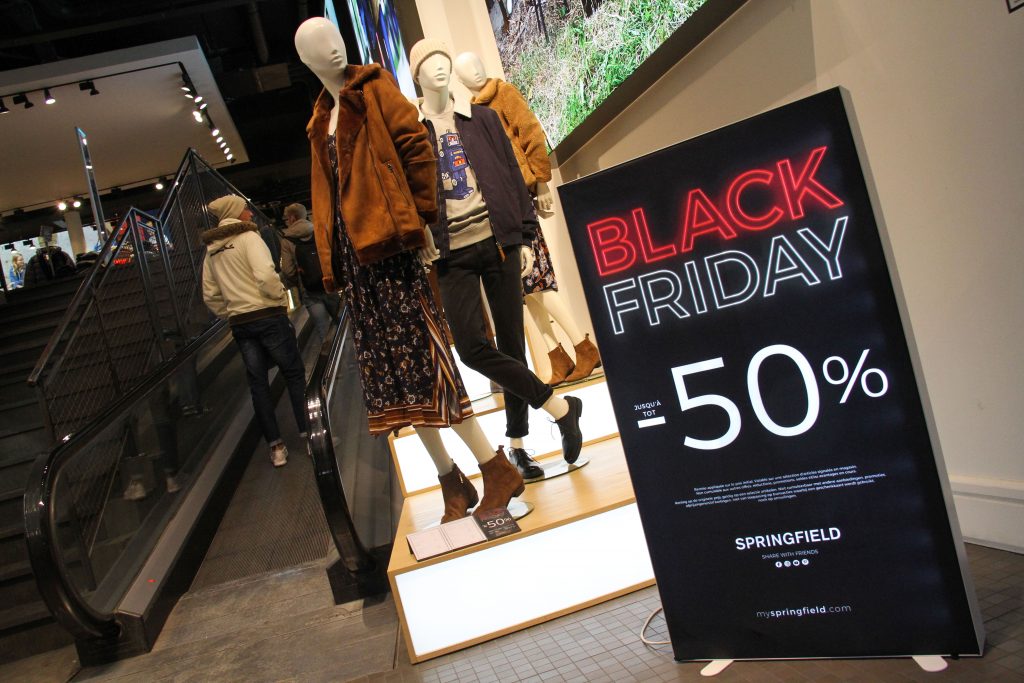Today is Black Friday: a North American custom that has made its way across the Atlantic and is when retailers aim to draw consumers in with low prices in order to sell lots of stock and boost revenue after Thanksgiving. In the US, consumers spend billions on this occasion.
Although potentially lucrative for businesses, the date fuels rampant – sometimes aggressive – consumerism as customers cram into retail stores in the hopes of securing a bargain. Moreover, the frenzied buying spree can have significant environmental downsides as people discard old electronics and other items in favour of the latest model.
In an effort to remedy this, the Wallonia-Brussels federation for social and circular enterprises (acronym RESSOURCES) has set out to promote responsible consumption as a solution to this often environmentally-detrimental habit.

Crowds surge to shops in search of deals. Credit: Belga
Today is the third consecutive year that RESSOURCES is organising "Green Friday" – a day to raise awareness for fair prices and the reuse of materials and objects, Belga News Agency reports.
"Our aim is to make consumers aware of the economic, social and environmental impact of their purchases," Franck Kerckhof, spokesperson for RESSOURCES explained. "Every gesture counts and can make a difference: borrowing, donating, repairing, revaluing or simply buying second-hand."
This Friday, "170 participating second-hand shops will offer their products at the same price as all year: the right price for our planet, our society and our economy," says RESSOURCES. Awareness-raising activities and repair workshops will also be organised for the occasion.
Green Friday is intended to be "a symbol of the fight against over-consumption that destroys the planet," say promoters. Organised since 2019 in Wallonia and Brussels, Green Friday brings together dozens of Belgian associations and companies active in the repairing, reuse and recovery of objects.
In 2020, sales in Belgium during Black Friday generated a lower turnover than in 2019, whereas the increase was constant in previous years, according to the research firm GfK. However, amid the coronavirus pandemic, online commerce had seen good growth, with 20% of transactions during the containment period, compared to 12% before the crisis.

